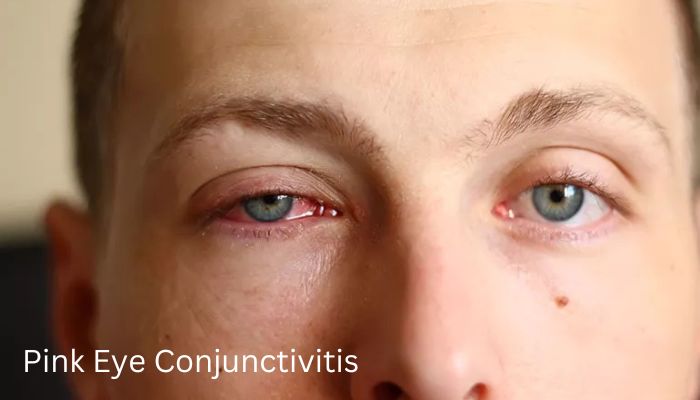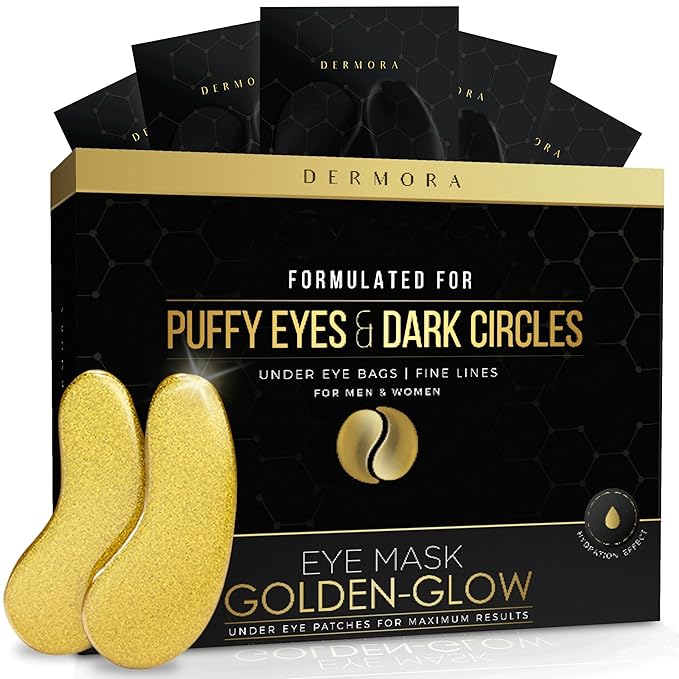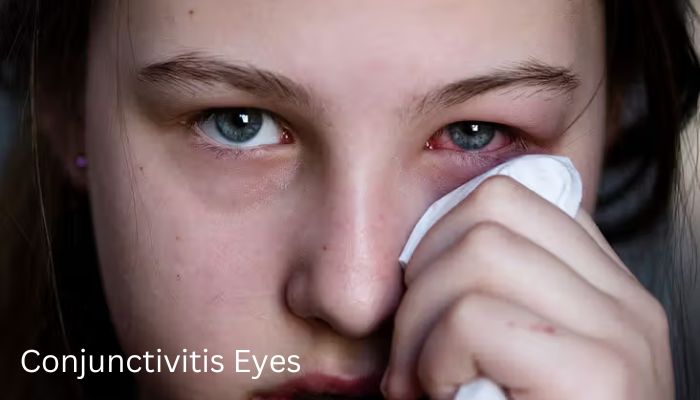Conjunctivitis, often known as “pink eye”, is an unpleasant eye state affecting millions of people around the world. Whether bacteria, viruses, allergies or irritability, symptoms – clarity, itching, discharge and swelling – can be disturbed. Although medical treatment is often necessary, especially for severe cases, there are many conjunctivitis self-care practices that you can use to reduce symptoms and promote rapid treatment. In this blog post we will discover practical and natural methods for handling conjunctivitis at home.
What is Conjunctivitis?
An inflammation of the conjunctiva, a thin, transparent layer of tissues that lines the inner surface of the eyelids and covers the white part of the eyes, is known as conjunctivitis. Maybe this is the cause:
- Bacterial infections
- Viral infections (highly contagious)
- Allergies (pollen, dust, or pet dander)
- Irritants (smoke, chlorine, or cosmetics)
It is important to understand the cause of your conjunctivitis for effective self -care. While bacterial and viral conjunctivitis often require medical care, allergies and irritable-inspired conjunctivitis can often be controlled with home remedies.

1. Maintain Proper Hygiene
One of the most important stages of conjunctivitis self -care is to prevent the spread of infection and maintain good hygiene to reduce irritation.
- Wash your hands repeatedly: Always wash your hands with soap and water before and after applying treatment.
- Avoid touching or rubbing your eyes: it can destroy irritation and spread the infection in another eye or others.
- Use clean towels and linen: Replace pillows, towels and devil daily to avoid regeneration.
- Disposal of eye makeup: If you have used eye makeup under conjunctivitis, you must throw it to prevent regeneration.
2. Apply Warm or Cold Compresses
Using compresses can provide immediate relief from discomfort and reduce swelling.
- Hot compressed: Ideal for bacteria or viral conjunctivitis, helps to loosen a warm compressed crust of discharge and soothe irritation. Soft a clean cloth in warm water, remove it and gently place it on the closed eyelids for 5-10 minutes.
- Cold compression: For allergic conjunctivitis, a cold compressed itching and inflammation can be reduced. Use a clean cloth soaked in cold water or cold gel.

3. Use artificial tears or smooth eye drops
Over-the-counter artificial tears or lubricating eye drops can help relieve dryness and wash away irritants.
- Choose preservatives-free drops to avoid further irritation.
- Apply the drops as directed, usually 2-4 times a day, or as necessary for comfort.
Avoid using redness-reducing drops, as they can worsen symptoms over time blogsgreat.com.
4. Try Natural Remedies
Several natural remedies can help soothe conjunctivitis symptoms. Always consult your doctor before trying these, especially if you have a severe infection.
- Sale: Rinse your eyes with a sterile salt water to remove irritability and discharge.
- Honey: Its antibacterial properties are well known and you can wash your eyes with thin honey (1 cup, 1 teaspoon and warm water). Honey should be clean and free of additives.
- Aloe Vera: Aloe Vera gel’s soothing properties can reduce inflammation. Apply a small amount of pure aloe vera gel to the eyes, but do not touch them directly.
5. Avoid Irritants and Allergens
If your conjunctivitis is caused by allergies or irritants, take steps to minimize exposure.
- Stay indoors under high pollen numbers: Keep the windows closed and use an air purifier to reduce allergies in your home.
- Wear sunglasses: Protect the eyes from air, dust and pollen when out.
- Avoid smoke and chemicals: Stay away from cigarette smoke, chlorine and rigid cleaning products.
6. Boost Your Immune System
A strong immune system can help your body fight off infections more effectively.
- Eat a balanced diet: Lots of fruits, vegetables and full grain include vitamins A, C and E.
- Stay hydrated: Drink a lot of water to keep your body and eyes hydrated.
- Get enough sleep: Rest is needed for recovery and immune function.
7. Know When to See a Doctor
Although self -care can be effective for mild cases of conjunctivitis, it is important to attract the attention of therapy:
- The symptoms persist for more than a week.
- You experience severe pain or sensitivity to light.
- Your vision is blurry or worsened.
- You notice a thick, yellow or green discharge.
A physician may prescribe antibiotic eye drops (for bacterial conjunctivitis) or recommend other treatments based on your condition blogsgreat.com.
Preventing the Spread of Conjunctivitis
Conjunctivitis, especially the viral and bacterial types, is highly contagious. To prevent spreading it to others:
- Avoid close contact with others until the symptoms are reduced.
- Do not divide towels, pillows or eye makeup.
- Disinfect surfaces and objects that you often touch, such as dorknobs and phones.
Final Thoughts
Conjunctivitis can be unpleasant, but with proper self -care you can handle symptoms and speed improvement. You can naturally calm your eyes by maintaining good hygiene using compressed and irritability. However, you should always consult a health care provider if the symptoms worsen or persist.
Remember your eyes are precious – mix them with care! By following these tips, you can secure and easily navigate conjunctivitis.

